Christian Homeschooling’s Hidden Currents: The LGBTQ Experience
As millions of queer kids start school this week, many will be learning at home with parents who believe that being LGBTQ is a sin.
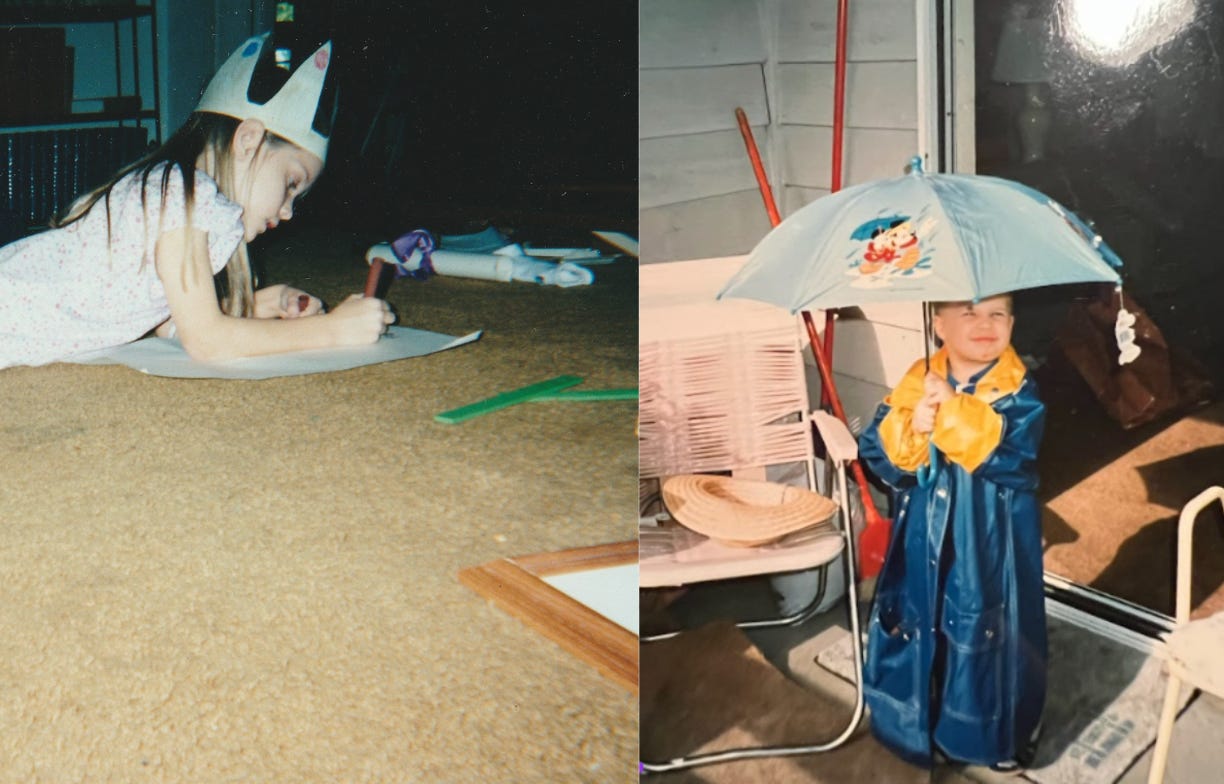
Editors’ note: This article includes mention of suicide and contains details about those who have attempted to take their own lives. If you are having thoughts of suicide, or are concerned that someone you know may be, resources are available here.
At 11 years old, in a town just outside Seattle, Charles Mark Masoner remembers dressing up in a tube top and low-rise jeans, an outfit he describes as “so Y2K.” He was hanging out with his friends in a cul-de-sac in front of his home when his mom saw that he was wearing girl's clothes.
“She just starts crying, wailing, and calling the elders from church,” says Masoner, now 36 and living between New York and Fayetteville, North Carolina.
Later that week, he remembers being pulled from Sunday school at his church in Marysville, Washington, where he was taken into a room with five elders, stripped of his polyester dress shirt, pants and belt and “whipped dozens of times.”
“I was wearing kid underwear. Every time I cried out, I got another ten hits,” he says.
Masoner remembers the elders demanding that he tell them everything and asking him questions like “Have you masturbated and to what kind of porn?” and “Have you touched boys?”
The church Masoner attended disbanded in 2010. The two men whose names Masoner remembers today, 25 years later, did not respond for comment. Masoner’s mother did not respond to multiple phone call and text message requests for an interview with Uncloseted Media. His father died in 2019, but his widow, Chasity Masoner, says none of what Masoner told Uncloseted Media surprises her. “It actually hurts me,” she says.
Masoner, who notes he took a Xanax before his interview with Uncloseted to “soften the blow” of reliving this trauma, says “a lot more” happened in that room that he doesn’t feel comfortable discussing.
While many kids in America who have experienced abuse found mentors or friends at school to turn to, that wasn’t the case for Masoner. As one of the growing number of LGBTQ Americans who have been homeschooled in conservative Christian environments, Masoner says he felt isolated from mainstream society and subjected to an education that was homophobic and hostile when it came to anything LGBTQ-related. “I felt like I was the only one that ever felt like this,” he says, referencing his feelings of same-sex attraction. “I felt alone and like nobody would be my friend.”
This isolation and hostility have damaging mental health effects for LGBTQ kids who are homeschooled in Christian environments. A 2019 study of 651 queer-identifying homeschooled students, published in the Journal of LGBT Youth, found that 87% of participants experienced mental illness, 72% reported suicidal thoughts and 22% had attempted suicide.
“We found that [homeschooled] LGBTQ participants … had astronomically higher negative mental health outcomes,” says Sloan Okrey Anderson, an assistant professor at St. Catherine University who authored the study.
Masoner says his mom and dad—like many other parents in the U.S.—learned how to teach their kids through Christian homeschooling organizations, some of which promote an ideology that opposes laws outlawing abusive practices such as bruising or spanking your children with objects.
Given the rise of anti-LGBTQ laws in the U.S. aimed at children’s education, experts say that with affirming parents, homeschooling can in some cases offer a more inclusive and healthy option for queer kids. But Masoner is one of many queer people who was subjected to abusive conditions as a kid, which may explain why he and other LGBTQ kids homeschooled in conservative Christian environments experience significantly higher rates of mental illness and suicide.
“Because there’s such little regulation it’s hard to do the research, but roughly 50 percent of homeschooling parents are conservative Christians, who have a range of hostile views to LGBTQ status and issues,” says Elizabeth Bartholet, law professor and director of the Child Advocacy Program at Harvard Law School.
“The homeschooling movement is similar to the gun lobby because it has such a narrow focus and it’s very well organized,” she says.
“And all they care about is making sure that there's no regulation of parents, even in terms of abuse and neglect issues.”
Masoner, who was homeschooled between the ages of 6 and 11, says he was taught various curricula from Bob Jones University and Abeka. He says his lessons either omitted homosexuality or depicted being gay as “unnatural.”
According to Masoner, his mother taught him that “homosexuality was a sin and akin to pedophilia.”
He says when his mom was at a homeschooling fair, she acquired “To Train Up A Child,” a book self-published in 1994 by independent Baptists Michael and Debbie Pearl. The book has been widely criticized for advocating corporal punishment. It has been linked to three deaths of homeschooled children whose parents owned the book. In the book, the Pearls—who did not respond to a request for comment—advocate for physical punishment to train children, including withholding food, hitting them with a rod to break their will, and leaving them underwater until “panic set[s] in” but not long enough to require resuscitation.
Masoner remembers his mom spanking him until he “stopped crying and [his] will was broken” and “whipping [him] with tree branches.”
“Her favorite thing to do was have us bend over wide-legged and grab our ankles. I fell over a couple of times, and she’d make me get right back into the position. She did that when I put on girl's clothes for the first time,” says Masoner.
Rules governing homeschooling in the U.S. vary. In 11 states, including Texas—where 7.2 percent of kids are homeschooled—regulation is practically nonexistent. Texas parents are not required to notify the school if they are withdrawing their child, and the state has no regulations related to homeschooling.
Bartholet says that states imposing stricter rules, such as curriculum requirements and mandated reports, do not have much impact. “Nobody's actually checking in on what's being taught in the home anywhere in the nation,” she says. “[In many states] even when there are those requirements, if you're a Christian, you can get a religious exemption.”
For Beck Proffer, who grew up in rural Beeville southeast of San Antonio, Texas, her homeschooling isolated her from mainstream society. She says she wasn’t allowed to watch Spongebob Squarepants because her mom believed that it was accepting of LGBTQ people.
When she saw two men kissing in a television commercial, her mom shut off the TV. “They’ve turned away from God,” she told her daughter.
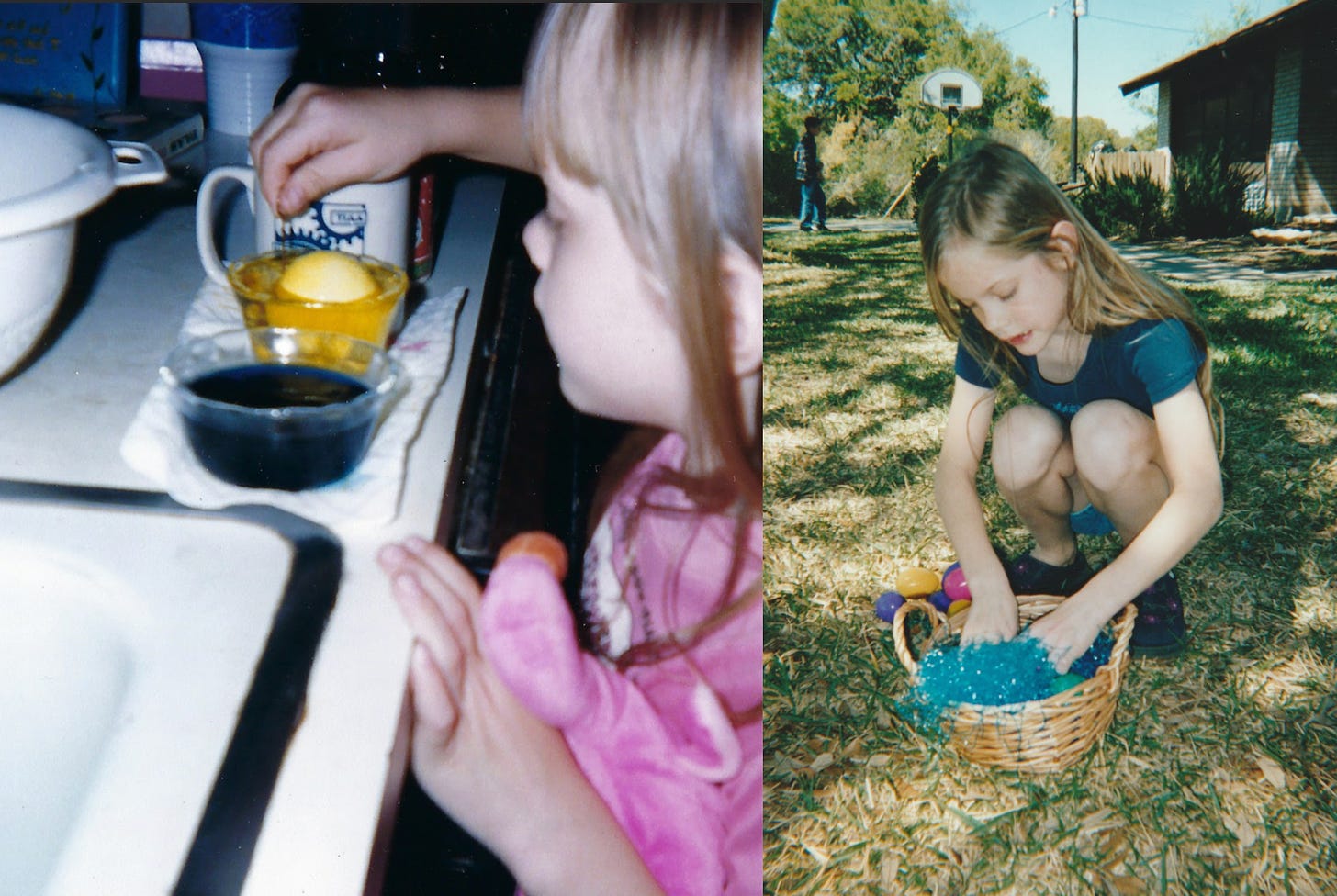
In an email, Proffer’s mother told Uncloseted she can’t remember most of what her daughter told us, but it’s “certainly possible” she said these things. “I would have said that [homosexuality] was wrong, that it wasn’t part of God’s plan for us.” However, she says the idea that Proffer had been isolated from mainstream society is “just not true.” She said that Proffer had friends and “went everywhere I did.”
Proffer’s parents used a Mennonite curriculum known as Rod and Staff that promised “Your child will be reading biblical truth instead of ‘fun stuff.’” Proffer had to study the story of Sodom and Gomorrah, two cities excoriated in the Bible for their wickedness. Fundamentalists cite the story as a warning against sinful behavior. Proffer says her mom called it “a condemnation of homosexuality.”
Proffer told Uncloseted that she learned homosexuality was a sin when she was 8 years old. In her early teens, she started experiencing same-sex attraction. She’d scour the Internet, Googling “cures for homosexuality” and searching for alternate Biblical interpretations of the passages she was forced to study.
“Like a lawyer, I was trying to uncover if there's something in the scriptures that exonerates me. Then I don’t have to feel bad about myself, or like I need to change. Then I am acceptable to God and acceptable to myself.”
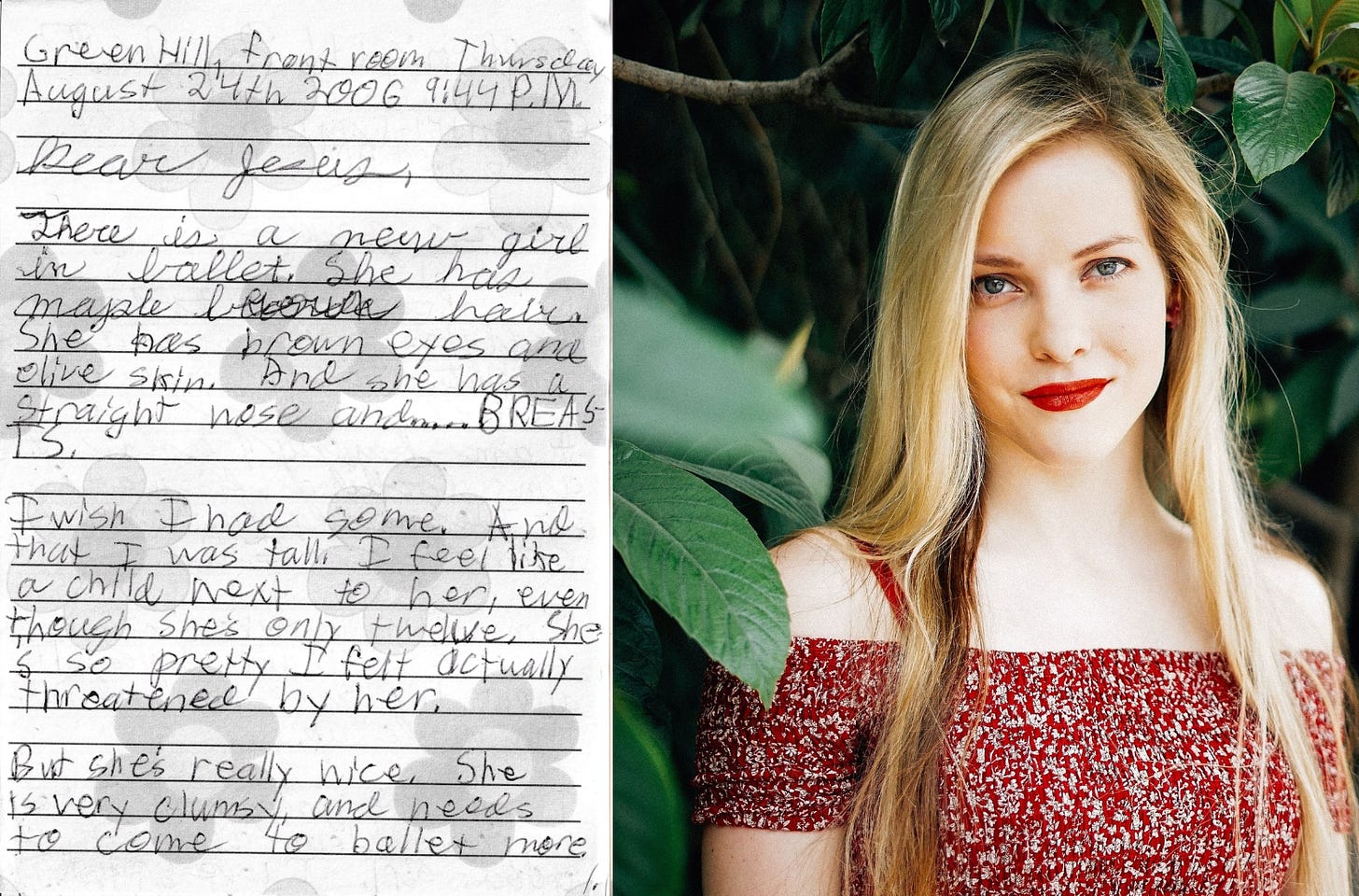
The internalized homophobia Proffer experienced is one reason she grapples with anxiety and depression today. Because suicide was treated as “the absolute sin” in the Bible, Proffer didn’t allow herself to go there.
Charles Mark Masoner says his mom’s teachings about being gay were horrible for his mental health. “I had zero self-respect and very poor hygiene,” he remembers.
He attempted suicide multiple times, including once with a rope he brought to the top of a barn where he planned to hang himself from the rafters. “I have no idea what pushed me to hang the rope back up,” he says.
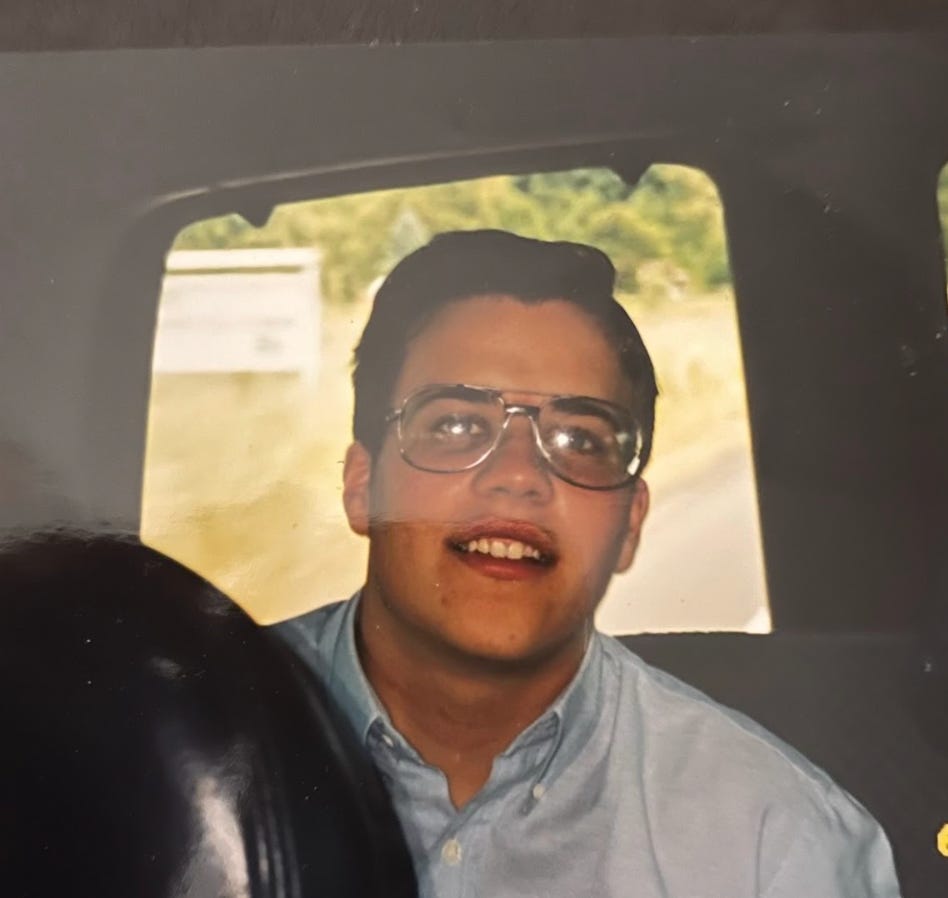
At 10, he tried to drown himself in a lake before his dad rescued him. At the time, his only concept of homosexuality was from Sodom and Gomorrah.
In the water, he thought, “I am a child. I haven't reached the Age of Accountability. God is going to let me go to heaven.”
Okrey Anderson says America’s homeschooling movement took off in the 1980s, spearheaded by a group of conservative Christian men. They say their family attended conferences held by the Homeschool Legal Defense Association (HSLDA), founded by Michael Farris. Okrey Anderson says they were taught “a whole worldview” that encouraged families to isolate themselves from mainstream society as much as possible.
Farris was president of Alliance Defending Freedom, an organization the Southern Poverty Law Center has designated an anti-LGBTQ hate group. In a 1987 speech, he said that public schools were indoctrinating children with secular worldviews, including LGBTQ-affirming messaging. Farris’s organization has defended parents’ right to spank their children and hit their children with objects, as well as opposed a Florida bill that would have added “excessive bruises or welts” to the state’s definition of “harm” in its child abuse and neglect code.
The HSLDA also opposes the United Nations Convention on the Rights of the Child, which sets out rights for children, including the right to education and protection from harm. There are 195 nations that have agreed to these guidelines. The U.S. signed the treaty in 1995, but it is the only country that has never officially ratified it, meaning the U.S. isn’t fully committed to the treaty’s terms.
Farris argued that the treaty would limit “self-governance” and interfere with the culture of the family.
When contacted, Farris declined to comment to Uncloseted. The HSLDA declined an interview with Uncloseted and did not respond to a list of questions.
A 2014 study of child torture victims—which included physical abuse, neglect and psychological maltreatment—found that almost half of the children were homeschooled.
28-year-old Bel was homeschooled in rural Texas and grew up isolated in a “Bible literalist” family which they describe as “cult-like.”
“I was convinced that the outside world was evil and out to get me because of the way my parents and the Church talked,” says Bel, who asked we only use their first name because they are not out to their parents.
Bel, who is nonbinary, experienced abuse growing up because of their gender presentation. At 8, they were screamed at for playing with the pink Power Ranger instead of the red one. In their early teens, Bel says their dad wrestled them down and forced them to wear a dress to find out what being queer “really felt like.”
At 10 years old, Masoner remembers watching coverage of Princess Diana’s death and asking his parents if he would become a princess if he married Prince William. “My Mom was horrified. She slapped me across the face and said, ‘Don't you ever say that here and embarrass me like that. You will repent for this.’”
Jonah Stewart, research director at the Coalition for Responsible Home Education, says there aren't any effective safeguards in place to ensure that homeschooled kids have access to an escape route from their families.
“When you think about identity-based abuse, one of the biggest indicators of resilience … is having an affirming community,” says Stewart.
Okrey Anderson’s research supports this. “Without the institutional support systems typically found in public schools, such as gay-straight alliances and supportive teachers, these youth often experience profound isolation and lack of support.”
Olivia Murray, associate professor of education at Portland State University and author of Queer Inclusion in Teacher Education, says additional research demonstrates the positive effect of LGBTQ-affirming adults in a kid’s life. “If you can just find one teacher in a homophobic and transphobic setting, it can help clear that fog,” she says. “But if the people that are providing you food and shelter and your education have those views, that is pretty scary.”
What can be done to change the current climate for queer kids in these abusive environments? Elizabeth Bartholet says more regulation is needed.
She thinks parents who want to homeschool should be required to request an exemption for their kids from school. They should also attend courses and extracurricular activities that ensure they are exposed to alternative values. “The goal of education is not to indoctrinate children in one ‘majority culture’ perspective, but to expose children to the wide range of views characteristic of our democracy,” says Bartholet.
When it comes to the safety of queer kids, Okrey Anderson argues that religious freedom laws allow parents to weaponize Christianity by spewing “homophobia and transphobia in forms of emotional, verbal and physical abuse against children.”
“As a whole, in this country, everything would be a lot better if we would stop giving special legal treatment to Christians,” Okrey Anderson says.
They recommend a hotline for kids to call if they are rejected at home. Being able to talk to safe adults would be a critical improvement.
“Children should have a right to education, and if parents are refusing to educate them, the kids should have a space to say, ‘I want something different for myself,’” says Okrey Anderson.
As millions of queer kids start school this week, many will be taught by parents who believe that being LGBTQ is a sin.
Charles Mark Masoner was eventually placed in the foster care system. He believes his biological parents “absolutely” put him there because he presented as gay. At 14, he was matched with affirming parents he says are his “real Mom and Dad.” From then on, his life changed for the better.
He remembers going dancing with his brother in Hell’s Kitchen (New York City) in his late teens, and having what he describes as his first consensual kiss. That night he had “the most peaceful sleep.”
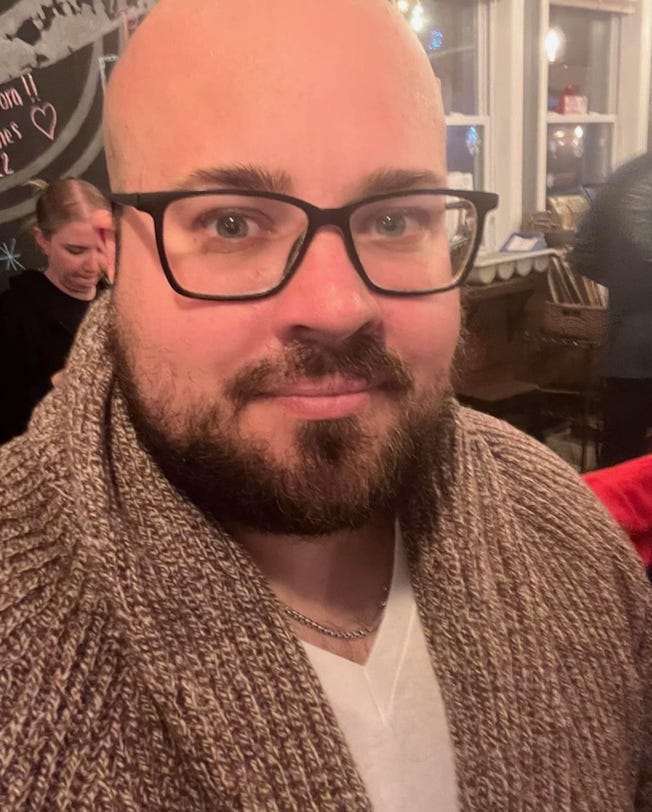
Now more than 25 years removed from an abusive homeschooling environment, Masoner has a simple message for queer kids in a similar situation:
“Hold on, because you will get control of your life someday.”
If you or someone you know is struggling with suicidal thoughts or mental health, call or text 988 to reach the Suicide and Crisis Hotline. Other support hotlines.
If objective, nonpartisan, rigorous, LGBTQ-focused journalism is important to you, please consider making a tax-deductible donation through our fiscal sponsor, Resource Impact, by clicking this button:


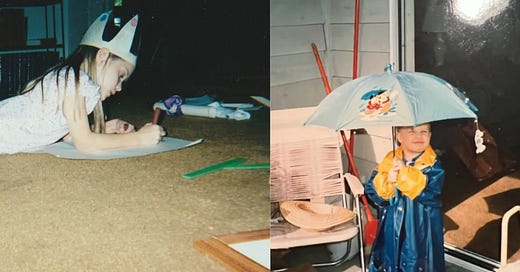



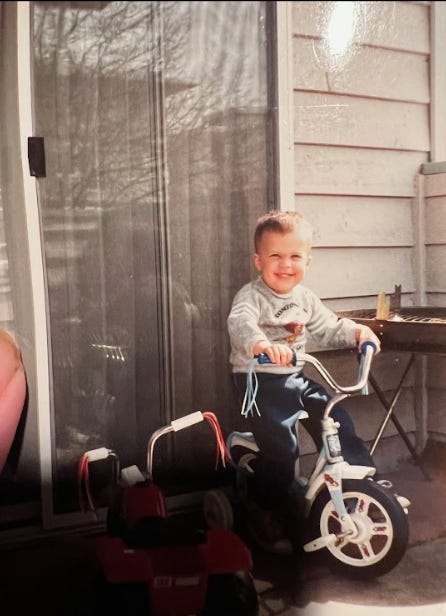

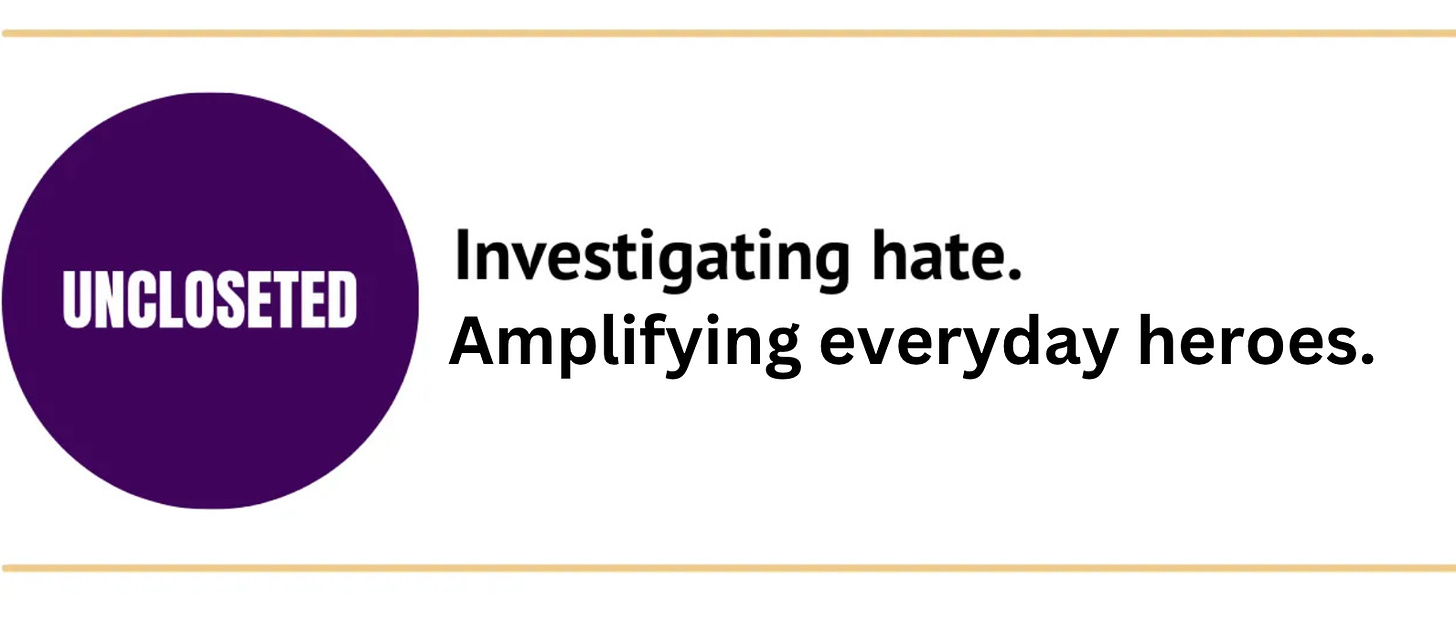
Somebody needs to tell Masoner to start thinking about gender. That story does *not* sound like a gay boy, it sounds entirely like a trans girl. Like, it would be hilariously ridiculous how stereotypically trans it all was, if it wasn't for the very real, very tragic consequences. As it is, it's a horrific example of trans genocide in miniature.
Heartbreaking but so true. Like Masoner said here, you do gain control of your own life as an adult and it gets SO MUCH BETTER. Hang in there kids, there's a long and beautiful life ahead of you.